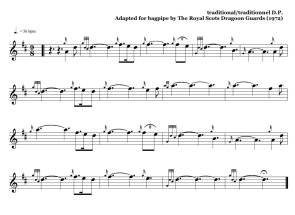© ericdentinger.com
2008-2026
Eric Maclewis - BAGPIPE SOUNDS
Eric Maclewis
AMAZING GRACE
Faith's Review And Expectation
(John Newton)
Amazing grace how sweet the sound
That saved a wretch like me
I once was lost but now am found
Was blind but now I see
'Twas grace that taught my heart to fear
And grace my fears relieved
How precious did that grace appear
The hour I first believed
Through many dangers, toils and snares
I have already come
It is grace that brought me safe thus far
And grace will lead me home
The Lord has promised good to me
His word my hope secures
He will my shield and portion be
As long as life endures
Yes, when this flesh and heart shall fail
And mortal life shall cease
I shall possess, within the veil
A life of joy and peace
The earth shall soon dissolve like snow
The sun forbear to shine
But God, who called me here below
Will be for ever mine
The lyrics written in 1772 are by John Newton (1725-1807), published by Newton and William Cowper in 1779 (collection of Olney Hymns) under the title Faith's Review And Expectation.
The song later passed to posterity with the first two words that begin this text: "Amazing Grace"...
John Newton, English by birth, was first enlisted aboard a Royal Navy ship and then after various wanderings (including a memorable stay in Africa during which he himself was a slave of an African princess...) then participated in the slave trade under other flags.
In 1748, he survived a strong storm in the middle of the Atlantic, off Donegal, and saw a sign of the divine Will.
He gave up the slave trade, married and became a pastor in 1764.
He was later an ardent promoter of the abolitionist cause.
While there is no record of a possible melody that would have been used during the first public presentation of this text in 1773, many tunes were subsequently used on both sides of the Atlantic.
It was only in 1835 (or 1847 for the first edition in the collection of scores "Southern Harmony"), under the impetus of William Walker, that the lyrics were attached to the aria named New Britain: this melody was itself inspired by two others, Gallaher and St. Mary published in 1829 by the Americans Charles Spilman and Benjamin Shaw in their collection Columbian Harmony.
As for the origin of these last two airs, mystery... (Appalachian music or other).
The current melody was adapted for bagpipe by the pipe band of the Royal Scots Dragoon Guards in 1972.
John Newton wrote his own epitaph:
“… John Newton, Clerk, once an infidel and libertine, a servant of slaves in Africa, was, by the rich mercy of our Lord and Saviour Jesus Christ, preserved, restored, pardoned, and appointed to preach the faith he had long labored to destroy…”
PRACTICE CHANTER:
1- be careful at the start: do not rush the first quarter note but put a solid A before the following eighth note,
2- it's a slow tempo so be careful not to rush anything, especially if you play in a band: pay particular attention to long values such as the High-A bars 8 and 9; obviously if you play as a soloist, you will have a little more freedom of expression and you can allow yourself some tempo variations…
but stay accurate with a certain value of beat (56 BPM e.g.) because the good result of a " rubato" playing is not always guaranteed...,
3- rhythmic:
- G grace notes firmly on the beat, as well as doublings and strikes
- D Throw = the first note (G) a little ahead of the beat or right on it.

- score by Eric Maclewis with CelticPipes
SLOW AIR

Send me an email with the number 1748 included:
I will send you a folder about this “Amazing Grace”,
with a free track specially mixed for this occasion!










